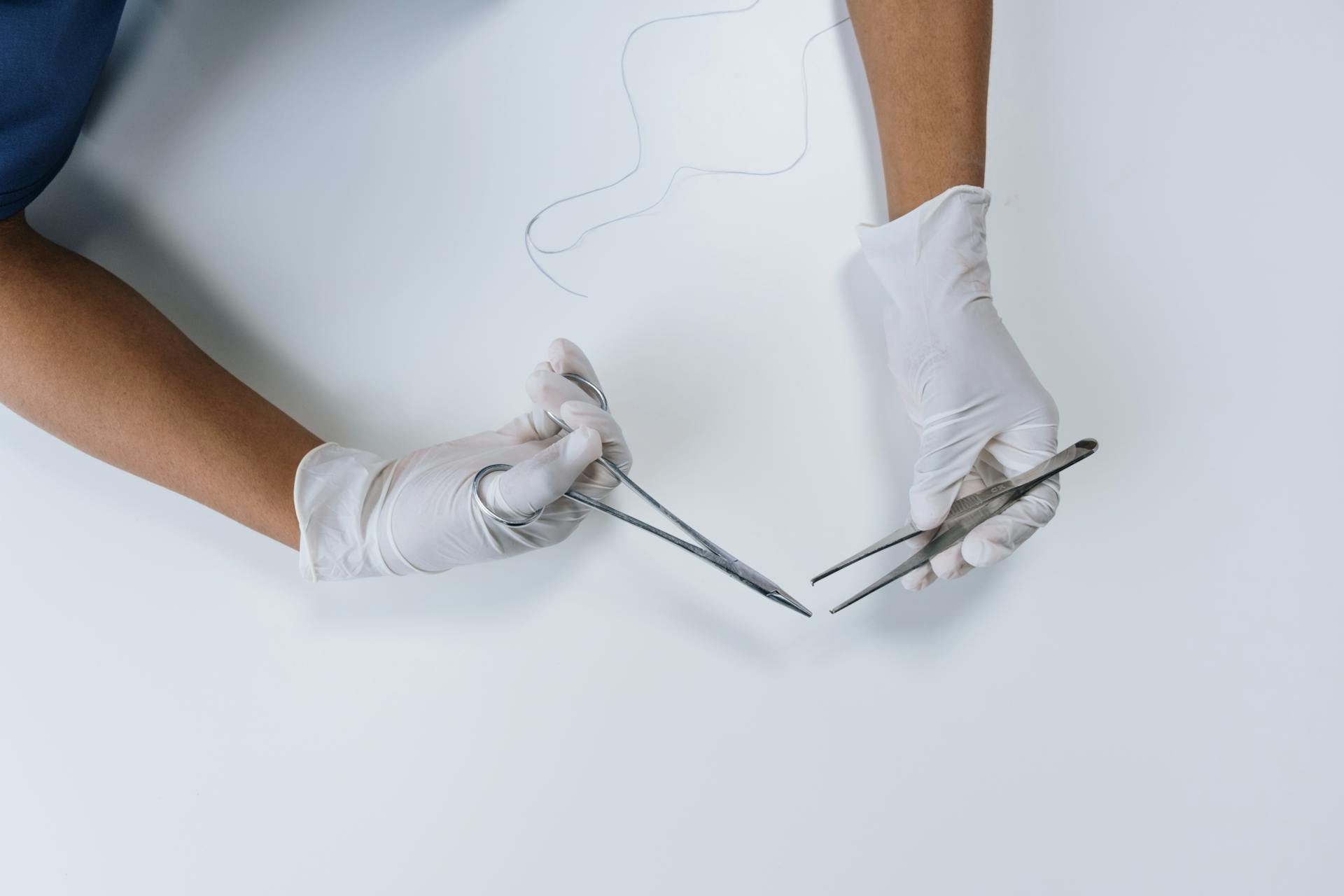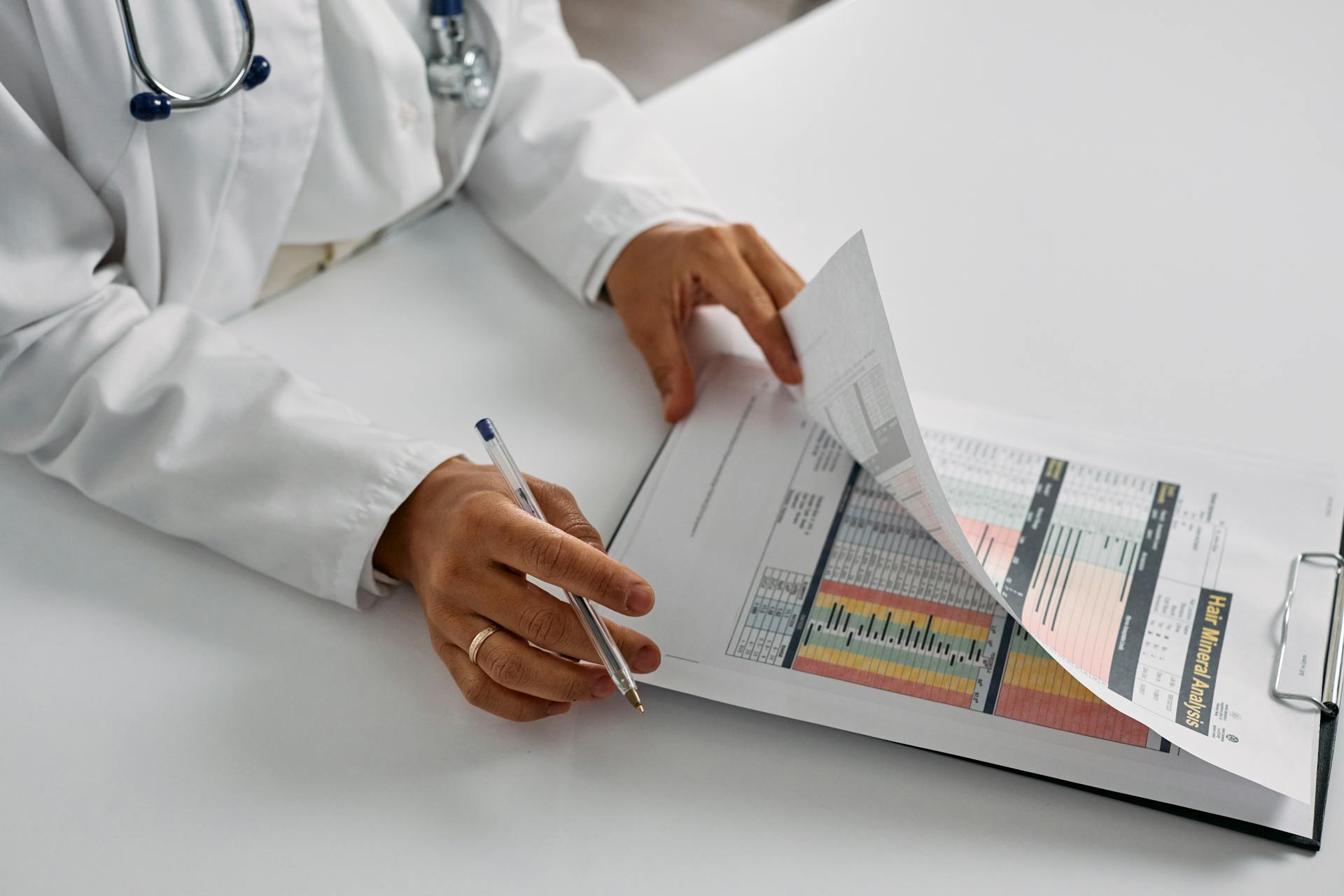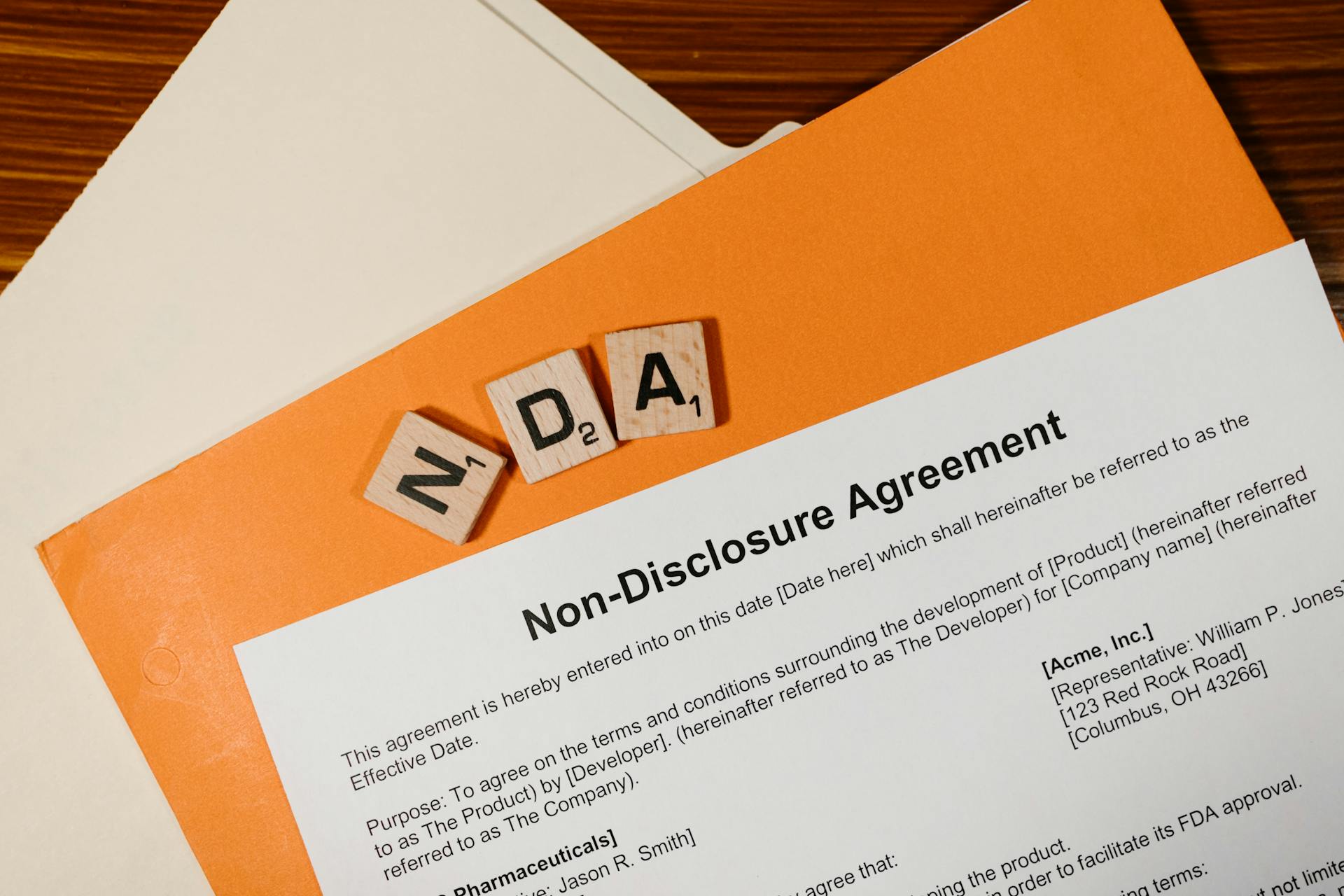
As a Hipaa Privacy Officer, your key functions and obligations are crucial to protecting sensitive patient information.
Developing and implementing policies and procedures is a major responsibility, which includes creating a comprehensive compliance program.
You will also be responsible for training staff on privacy policies and procedures, ensuring they understand their roles and responsibilities in maintaining patient confidentiality.
The Privacy Officer must also conduct regular risk assessments to identify potential vulnerabilities in the organization's privacy practices.
HIPAA Privacy Officer Role
A HIPAA Privacy Officer plays a vital role in helping organizations meet the requirements outlined in HIPAA. This individual is responsible for conducting regular risk assessments to identify potential vulnerabilities in the organization's systems and processes.
The HIPAA Privacy Officer oversees all ongoing activities related to the development, implementation, and maintenance of the organization's Privacy Policies and Procedures. This includes adopting and updating policies and procedures to comply with the HIPAA Privacy Rule.

Key responsibilities of a HIPAA Privacy Officer include conducting regular risk assessments, implementing safeguards to mitigate threats to patient data security, and ensuring the confidentiality of Protected Health Information (PHI). They must also monitor Business Associates to ensure they are correctly implementing their HIPAA compliance programs.
A HIPAA Privacy Officer is typically a respected leader within the company, with a broad understanding of the organization and the ability to create a receptive environment for HIPAA. This individual must have good organizational skills, a knack for detail, and a strong understanding of HIPAA.
The responsibilities of a HIPAA Privacy Officer include:
- Adopting appropriate Policies and Procedures to comply with the HIPAA Privacy Rule
- Updating Privacy Policies and Procedures (annually)
- Sending out a Notice of Privacy Practices to all patients/clients
- Collecting Business Associate Agreements (BAAs) from all Business Associates and updating any BAAs as needed
- Monitoring Business Associates to make sure they are correctly implementing their HIPAA compliance programs
- Ensuring all HIPAA-related documents and information is correct and up to date
- Overseeing the implementation of client and/or employee Privacy Rights
- Monitoring all covered items for compliance with Privacy Policies and Procedures
- Receiving and responding to complaints of alleged non-compliance with the HIPAA Privacy Rule
- Instituting corrective action in the event of any HIPAA mistakes or breaches
- Working closely with legal counsel and the Security Officer
- Coordinating the training of all employees that come in contact with PHI
- Answering HIPAA-related questions from fellow employees and clients
A HIPAA Privacy Officer must also work closely with legal counsel and the Security Officer to ensure that the organization is in compliance with HIPAA regulations.
Health Information Rights and Disclosure
As a HIPAA Privacy Officer, it's essential to understand the rights of patients when it comes to their health information. You have the right to request a limit on certain uses and releases of your health information, but this request must be in writing and submitted to our Privacy Department.
You also have the right to choose how you receive your health information, such as by mail or phone, as long as we can easily provide it in the format you requested. These requests must also be in writing.
Here are the specific rights you have when it comes to your health information:
- Request a limit on certain uses and releases of your health information
- Choose how you receive your health information
- See and get copies of your health information
- Request corrections or updates to your health information
- Receive a list of disclosures we have made
- Get a paper copy of this notice
It's worth noting that you have the right to revoke your authorization to use or disclose your health information at any time, but this will not apply to information already disclosed prior to the request.
Incidental Disclosures
We make reasonable efforts to avoid incidental disclosures of your PHI. An example of an incidental disclosure is conversations that may be overheard between you and our team members at a BayCare Health System facility.
Incidental disclosures can happen in any setting, including in waiting rooms or near elevators. They are not intentional, but rather a result of the way we interact with others in public spaces.

The Privacy Officer takes charge of incident management if an incidental disclosure occurs, investigating the breach and assessing its impact. This is to ensure that your PHI is protected and that any damage is mitigated.
We are committed to being mindful of our surroundings and taking steps to prevent incidental disclosures from happening in the first place. This includes being respectful of your privacy and taking care to speak in private areas.
Health Information Rights
You have the right to request a limit on certain uses and releases of your health information, but this must be in writing and submitted to our Privacy Department. We'll consider your request, but we're not required to accept it unless you've paid for an item or service in full.
You can choose how you receive your health information, such as by phone instead of mail or post office box instead of home address. These requests must be in writing and we must agree to your request as long as we can easily provide it in the format you requested.

You have the right to see and get copies of your health information, in most cases. You can request an electronic copy of your records if they're maintained in an electronic format. Florida law may restrict access for behavioral health patients.
If your health information is incorrect or incomplete, you can request that we correct or update it. We're not required to change your health information, but we'll provide you with information about our decision if we deny your request.
You have the right to receive a list of disclosures we've made, but we don't have to account for certain types of disclosures, such as those related to treatment, payment, or health care operations.
Here's a summary of your health information rights:
- Request a limit on certain uses and releases of your health information
- Choose how you receive your health information
- See and get copies of your health information
- Request corrections or updates to your health information
- Receive a list of disclosures we've made
Complaints and Patient Communication
If you believe your privacy rights have been violated, you can file a complaint with the Chief Privacy Officer or the Secretary of the Department of Health & Human Services.

You won't be penalized for filing a complaint, so don't hesitate to speak up if you feel your rights have been compromised.
A HIPAA officer can help patients understand their rights regarding their medical information, including diagnoses, treatments, and test results.
By explaining these rights in a simple way, HIPAA officers empower patients to take charge of their healthcare decisions and protect their privacy.
To address patient privacy complaints, the Privacy Officer plays a key role in investigating and resolving the issue, working with the patient, internal stakeholders, and external parties involved.
A HIPAA officer should have strong communication and interpersonal skills to effectively communicate with employees, patients, and other stakeholders about HIPAA compliance policies and procedures.
By taking the time to educate patients on their rights, HIPAA officers perform a valuable public service and promote trust in the healthcare system.
Regulatory Compliance and Enforcement
As the Privacy Officer, one of your key responsibilities is enforcing regulations to protect patient data. This includes conducting risk assessments to identify potential security threats.

You'll also review your organization's policies to ensure they meet HIPAA standards. This is crucial for maintaining patient trust and avoiding costly fines.
The Privacy Officer acts as the main point of contact between your organization and regulatory bodies like the Office for Civil Rights (OCR). They ensure compliance with audits, investigations, and other regulatory requirements.
You'll need to keep thorough records and documentation of notices and forms, among other useful data. This will help you stay organized and provide evidence of compliance if needed.
Risk Management and Security
Conducting regular risk assessments is crucial for healthcare organizations to identify vulnerabilities and improve cybersecurity. This is a mandatory step for healthcare providers seeking to receive electronic health record incentive payments.
A Security Risk Analysis (SRA) is a prudent measure to take, enabling organizations to make urgent improvements to protect critical data and maintain compliance with HIPAA regulations. Regular SRAs shed light on potential vulnerabilities and allow organizations to identify solutions that improve cybersecurity and staff awareness.

Balancing security and access to protected health information is a challenge HIPAA officers face. They must develop and implement appropriate access controls to ensure that only authorized personnel can access protected health information.
Privacy, security, and compliance are interconnected in healthcare organizations. The Privacy Officer collaborates closely with IT and security teams to implement technical safeguards such as firewalls, encryption tools, and access controls to ensure the confidentiality and integrity of patient information.
Address Faults
If a breach or non-compliance issue is identified, the HIPAA compliance officer must take corrective actions. This may include drafting and implementing new procedures to ensure compliance.
The HIPAA officer must also investigate the issue thoroughly to determine its root cause. This involves reviewing relevant policies and procedures to identify areas for improvement.
Corrective actions may also involve sanctioning an employee who has failed to abide by compliance guidelines. This sends a clear message that non-compliance will not be tolerated.

Regular audits and risk assessments can help prevent breaches and non-compliance issues from occurring in the first place. By identifying potential risks, organizations can take proactive steps to mitigate them.
Incident management is also crucial in the event of a breach or non-compliance issue. The Privacy Officer takes charge of incident management, investigating the breach, assessing its impact, and taking appropriate measures to mitigate the damage.
Conduct Risk Assessments
Conducting regular risk assessments is a crucial step in ensuring your organization is fully compliant with the HIPAA Security Rule. This assessment sheds light on potential vulnerabilities and allows organizations to identify solutions that improve cybersecurity and staff awareness.
In these times where cybersecurity is more critical than ever, conducting a Security Risk Analysis (SRA) regularly is a prudent measure to take. For healthcare providers seeking to receive electronic health record incentive payments, risk analysis is mandatory!
Conducting a risk assessment helps identify areas where patient data may be vulnerable to breaches, as seen in regular privacy risk assessments. This evaluation of existing security measures and recommendations for improvement can mitigate potential risks.
Regular risk assessments also enable healthcare organizations to make urgent improvements to protect critical data and maintain compliance with HIPAA regulations.
Maintaining Documentation

Maintaining documentation is crucial for risk management and security. Documenting privacy policies, procedures, and incident reports is critical for maintaining compliance and demonstrating due diligence.
The Privacy Officer ensures that all documentation related to privacy is comprehensive, up-to-date, and readily accessible for internal audits and regulatory inspections. This means having a system in place to keep track of and organize all relevant documents.
Having a centralized and easily accessible location for documentation can save time and reduce stress during audits and inspections.
Frequently Asked Questions
What is the difference between a HIPAA privacy officer and a security officer?
A HIPAA Privacy Officer focuses on protecting patient privacy, while a HIPAA Security Officer ensures the confidentiality, integrity, and availability of electronic patient data. Understanding their distinct roles is crucial for healthcare organizations to comply with HIPAA regulations.
Featured Images: pexels.com

